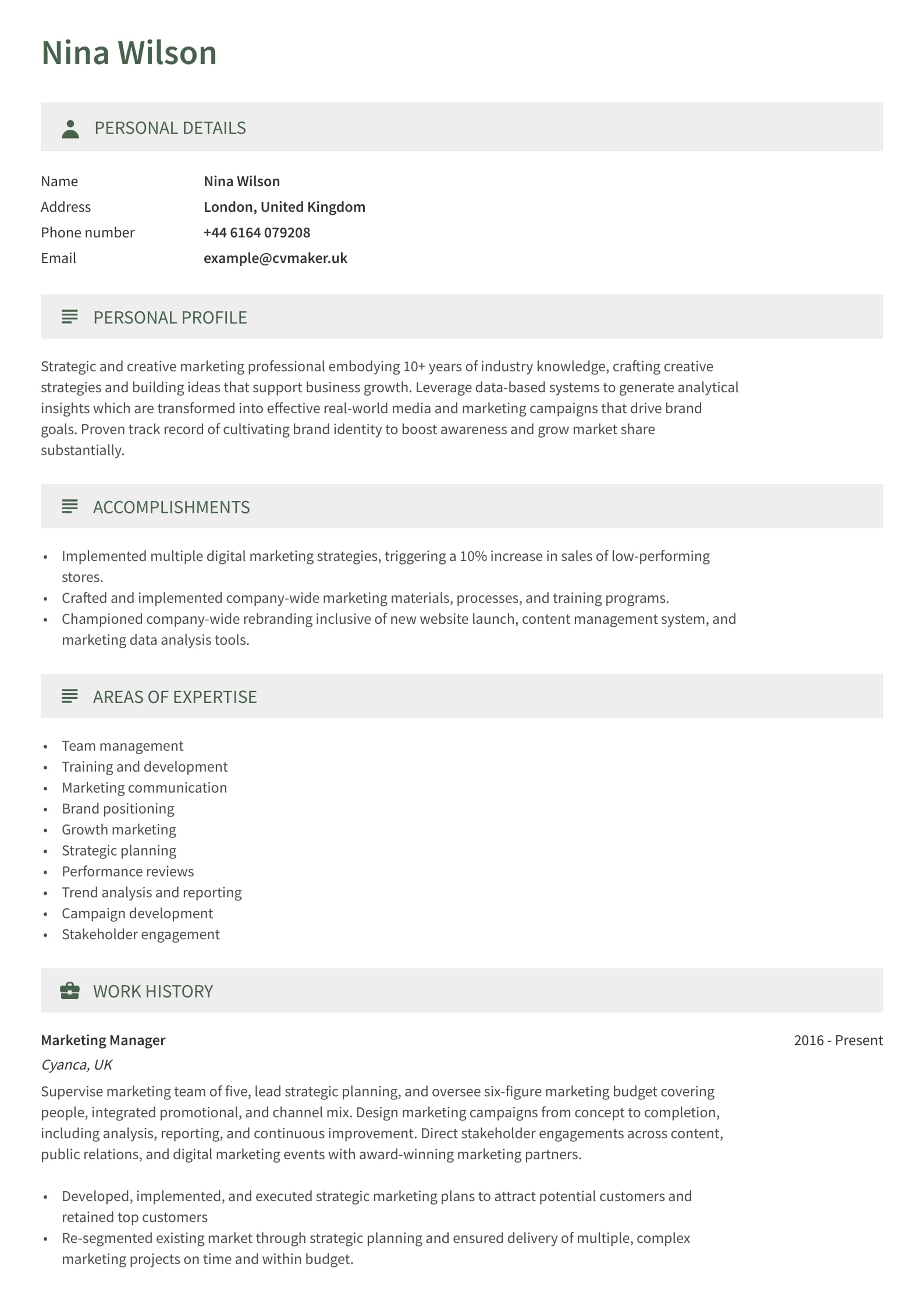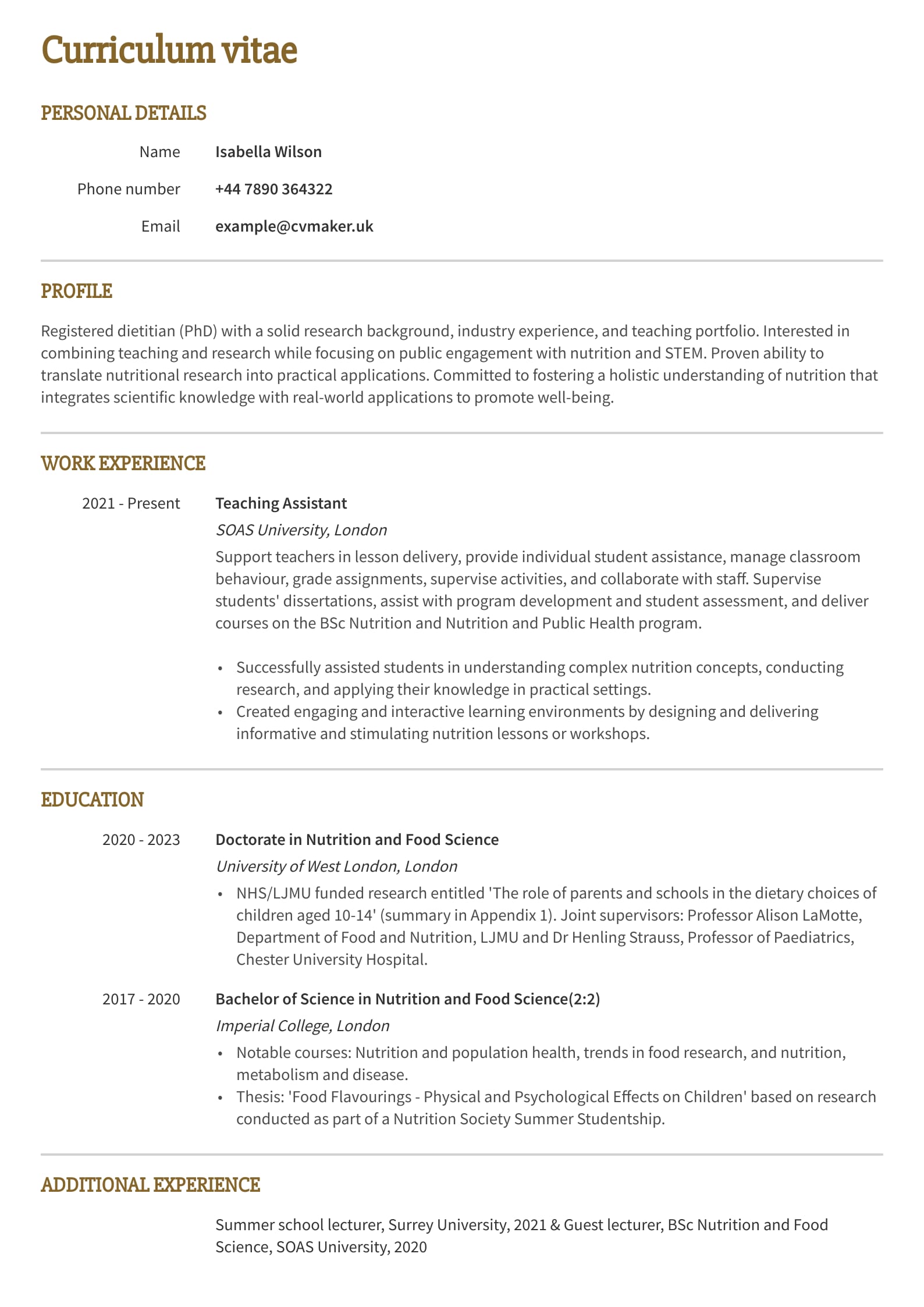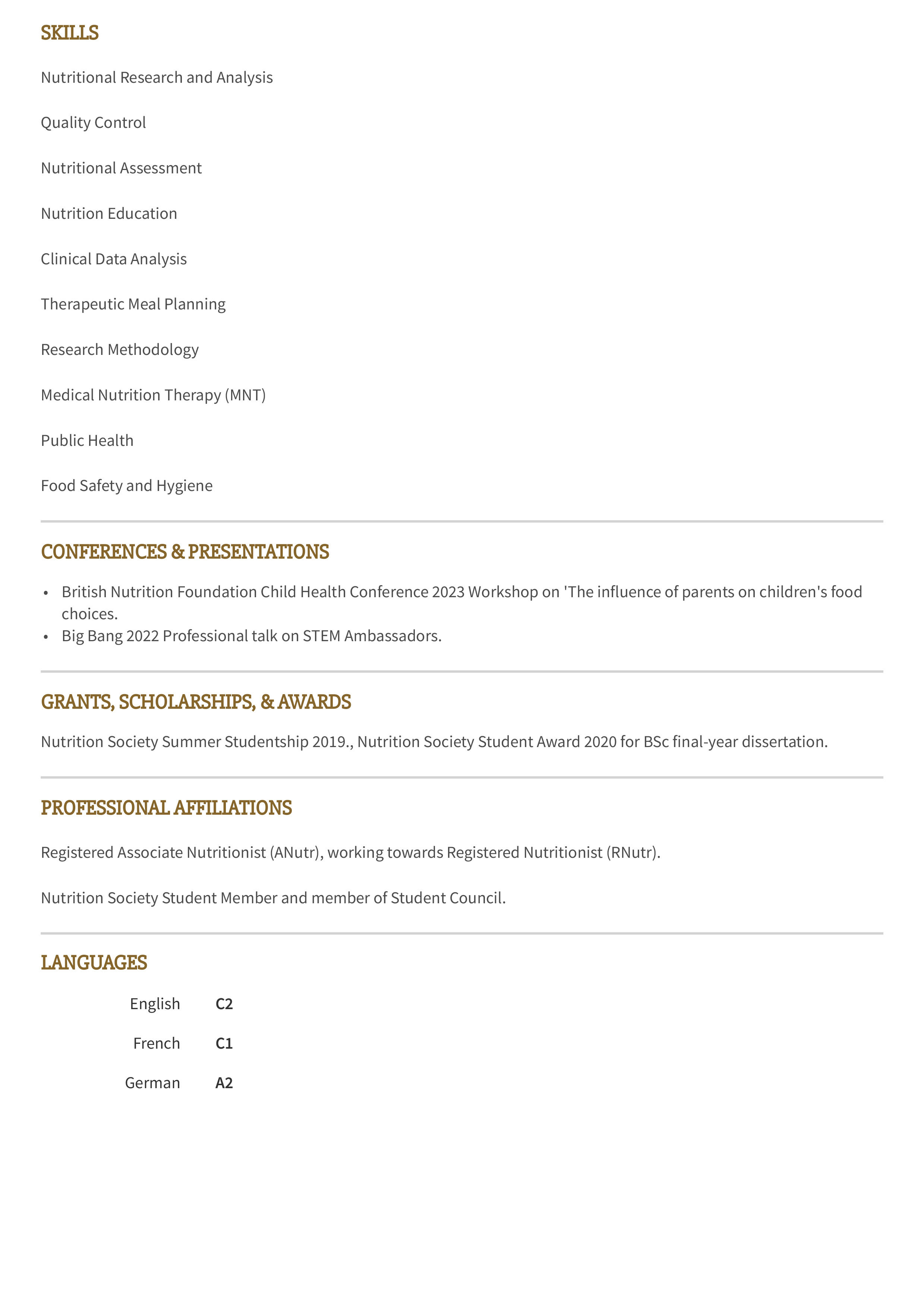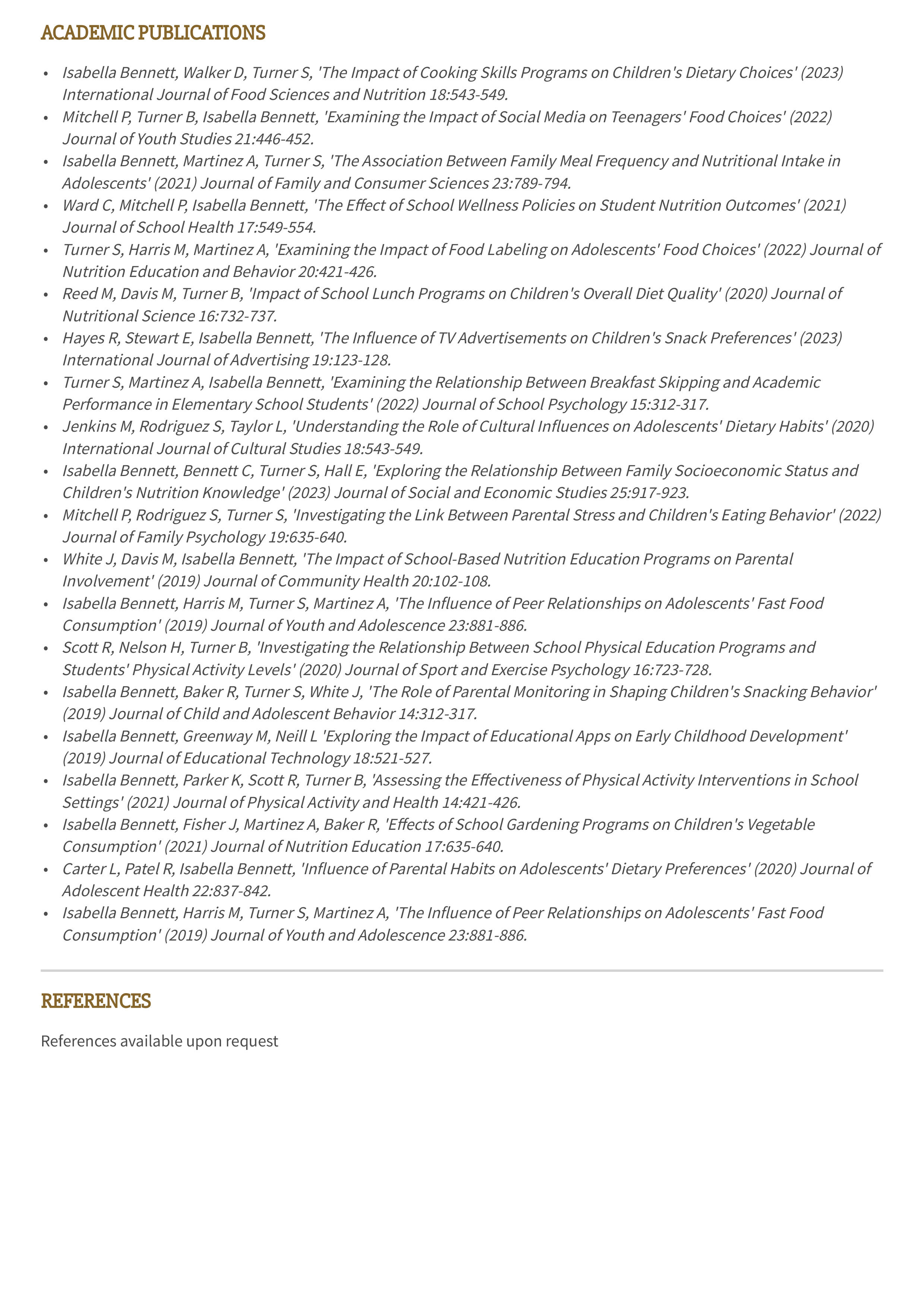Determining the ideal length for your CV is crucial in presenting a compelling professional profile. It's not just about showcasing your skills but strategically aligning your experiences with the specific job you're pursuing. Moreover, ensuring that your CV is applicant tracking system (ATS)-friendly is paramount, given that large companies employ these systems to screen candidates based on formatting and length. Whether you're entering the professional world or an experienced specialist, let's explore the optimal CV length based on your career stage.
See how to write a good CV to learn which sections to add based on your job.

CV Length: One Page vs. Two Pages
A successful CV typically falls within one to two pages. While no strict rules dictate the CV's length, brevity is crucial given recruiters' time constraints. Opt for a one-page format for a quick snapshot, especially if a job listing specifies. A two-page CV is acceptable for those with extensive experience. Save a three-page CV for senior roles, academic CV format, or exceptional candidates.
For inspiration, refer CVMaker's collection of over 160+ CV example articles to help you get started. Additionally, we designed easy-to-read CV templates to improve your job prospects.
One-page CV template in the UK

Download this free project manager CV example
Matthew Lewis is an experienced and qualified Project Manager who has opted for the Erasmus template. This is a one-page CV sample with a two-column layout and a modern CV design. His CV is simple, easy to read, and, most importantly, tailored to his career goals.
See our project manager CV for more inspiration.
Two-page CV template in the UK 

Download this CV example - Marketing CV
This marketing CV example is a digital marketing professional with over ten years of experience. This is a two-page CV sample with a one-column layout and a simple CV template. She is a leader with a dedicated and innovative mindset who knows how to drive sales growth and effectively communicate with diverse customers and stakeholders. Holder of master's degree in marketing with training in content marketing, digital marketing, and SEO.
Refer to the marketing CV or digital marketing CV examples for more details.
Three-page CV template in the UK



Download this CV example - Academic CV
Isabella Bennett, a highly accomplished Registered Dietitian, selected the California CV template to showcase her expertise. This is a three-page CV sample with a one-column format and easy-to-read font. She seamlessly combines teaching, research, and public engagement in nutrition and STEM fields. Her solid research background and industry experience enable her to develop tailored dietary plans.
See our academic CV example to learn more about this format.
When to opt for a one-page CV
Set sail and adopt this CV format if you are writing a CV for a first job, a recent graduate, or exploring a new industry. Whether you're a school leaver seeking to enter a professional world, an undergraduate, or looking for a career change, this CV length works especially well for landing entry-level roles when a job description asks for it. A one-page CV allows you to briefly present your education, work history, areas of expertise, strengths, and notable achievements without overloading it with unnecessary details.
Pros:
Concise and easy-to-read
Ideal for entry-level positions or those just starting out their career
Provides a brief snapshot of your qualifications.
Cons:
May not provide enough detail for more experienced candidates
Difficult to showcase extensive experience
May not be suitable for senior roles.
See our article on how to list achievements on a CV for more information.
When to opt for a two-page CV
Unfold your career book and imagine adding more chapters to your story: that's the two-page CV. It's perfect if you've held multiple roles or wish to highlight skills tailored to a specific position. If you're inclined towards academics or research, this is your chance to showcase relevant publications or projects.
Pro Tip
You can effectively communicate your career trajectory, skills, and accomplishments by selecting the right length. This approach ensures that your CV resonates with what employers seek, maximising your chances of success.
Mid-career professionals often find the two-page CV fitting. This format allows you to delve deeper into your professional history, highlight significant milestones, and spotlight a diverse skill set. It's advantageous when a job requires a long track record of projects, surpassing what a single page can include.
Pros:
Provides more space to showcase your skills and experience
Ideal for job seekers with extensive work experience
Allows to include certifications, awards, career accomplishments, or other additional sections
Cons:
May be too long for some employers
Requires careful editing to avoid redundancy
May not be suitable for senior roles.
If you have little to no experience, we suggest you refer to our article on how to enter the workforce after graduating.
When to opt for a longer CV (3 pages or more)
Chronicle your career journey and extend your CV canvas by elegantly listing your experiences or portfolio. This terrain is especially fitting for seasoned professionals in senior or C-level executive roles. This type of CV strongly emphasises leadership, strategic thinking, and an extensive record of achievements and skills.
Pro Tip
For the longer CV, ensure your content remains engaging and focused on your key academic accomplishments, publications, or other references.
Like its two-page counterpart, this longer version is excellent for researchers or students applying for universities. Share details about your experiences and give a detailed account of your publications and relevant research topics you’re fascinated about.
Pros:
Ideal for senior roles or exceptional candidates
Provides ample space to showcase extensive experience and qualifications
More suitable for academic CVs with a record of research projects, publications, and conferences.
Cons:
May be too long for some employers
Requires careful editing to avoid redundancy
May not be suitable for entry-level positions.
Tips for reducing CV length
Below are a few suggestions on how to shorten your CV using three simple tips to help you get a competitive edge over competitors:
1. Exclude irrelevant details
It’s essential to avoid irrelevant information such as hobbies, interests, or personal details that do not relate to your industry or job target. This could help you keep your CV concise and focused on the most important information.
See how to improve your CV to master your writing skills.
2. Tailor your CV to one job
Tailor your CV to the specific job you’re applying for by emphasising the skills and experience that match the job description. Doing so allows you to highlight your relevant qualifications and experience and makes it easier for recruiters to see how you fit the job requirements.
For example, if you’re applying for a digital marketing position, you might want to emphasise your experience with social media marketing, content creation, and analytics. If you’re applying for a software developer position, it can be beneficial to highlight your experience with specific programming languages, software development methodologies, and tools.
Refer to the master vs job-specific CV article for more details.
3. Use consistent formatting
Using bullet points and professional font can help you present your information in a clear and concise manner. They also make it easier for recruiters to scan your CV quickly and identify your key qualifications and experience.
For example, you could make use of bullet points to list your relevant work experience, education, and skills. Be sure to keep them short and concise, and use action verbs to describe your accomplishments, not duties.
Refer to our article on selecting the best CV font for more information.
Key takeaways
Quality content trumps quantity and holds your key to success. Remember, it's not about pages but about what goes on them. You are one step ahead of competitors by striking the right balance between these two. Make a lasting impression by effectively showcasing your strengths and quantifying your achievements. Follow our final tips below to excel in your career search and win that all-important job interview.
![]()
Next steps?
Once you have created a compelling CV that strikes the right balance between content and length, it’s time to take the next steps towards choosing a CV template or accompanying cover letter template. If writing is not your strong suit, consider using our CV Writing Services to improve your career documents or let us create them from scratch. We can help you choose the appropriate CV as well as cover letter length so you can confidently apply for your dream job.

FAQ
Should you use one page as a fresh graduate?
Absolutely! It’s a wise choice, allowing you to concisely showcase your education, internships, or any other relevant activities. Keeping your CV brief ensures hiring managers can quickly identify the job’s requirements and think of you as the right fit for the role. But a two-page CV could also work if you've got some exceptional achievements or an extensive portfolio. Alternatively, consider learning more about how to make a digital portfolio that you can easily link to in your CV.
See the graduate CV example article for more details
What to include in a one-page CV?
In a one-page CV, make sure to cover the basics. Include your educational background, internships, and any part-time roles. Highlight key skills that align with the job you're targeting. Keep it focused and impactful to convey the most essential information.
What to include in a two-page CV?
For a two-page CV, you can delve into more detail. Alongside education and work experience, elaborate on your accomplishments, additional experience, and specific projects. Showcase your skill set and any additional experiences that bolster your candidacy for the role. Keep it engaging and relevant throughout both pages.
How many words should a CV be?
The length of a CV is not set in stone, but it’s generally recommended to keep it between 150 and 400 words. Avoid including irrelevant or outdated details or going off-topic, as hiring managers and recruiters value brevity over quantity.
How long should a CV be for a senior position?
A senior position CV should be around 1-2 pages long. However, if you have extensive experience and exceptional results, you can extend it to 3-4 pages. It’s important to note that the CV length is not as important as its content. Thus, you should highlight your relevant skills and experience that match the job description.

)



)

)
